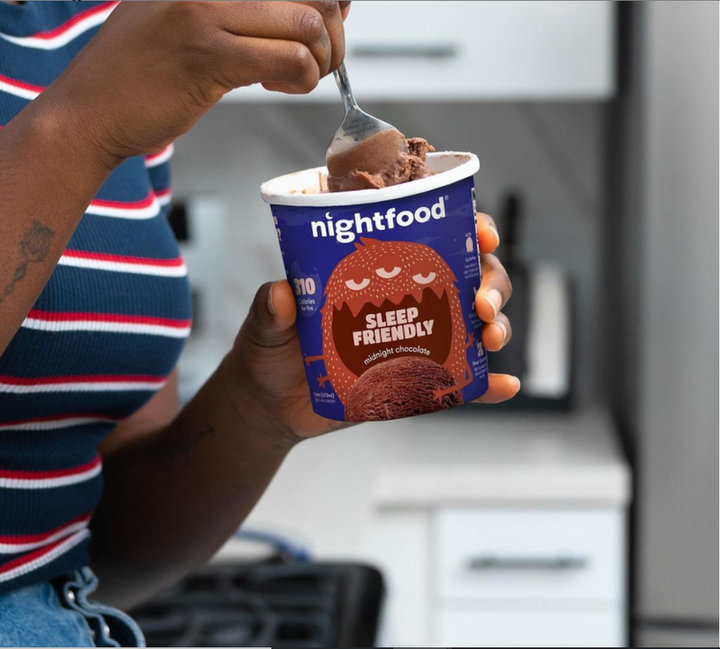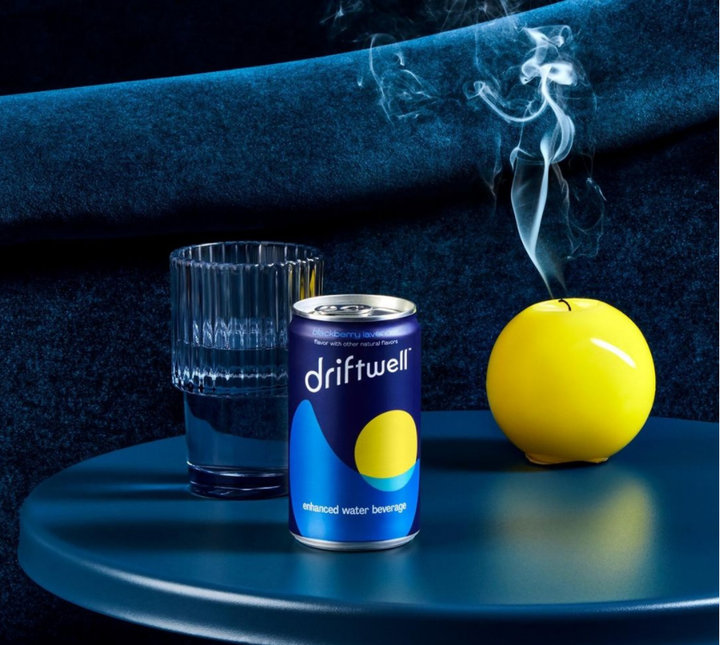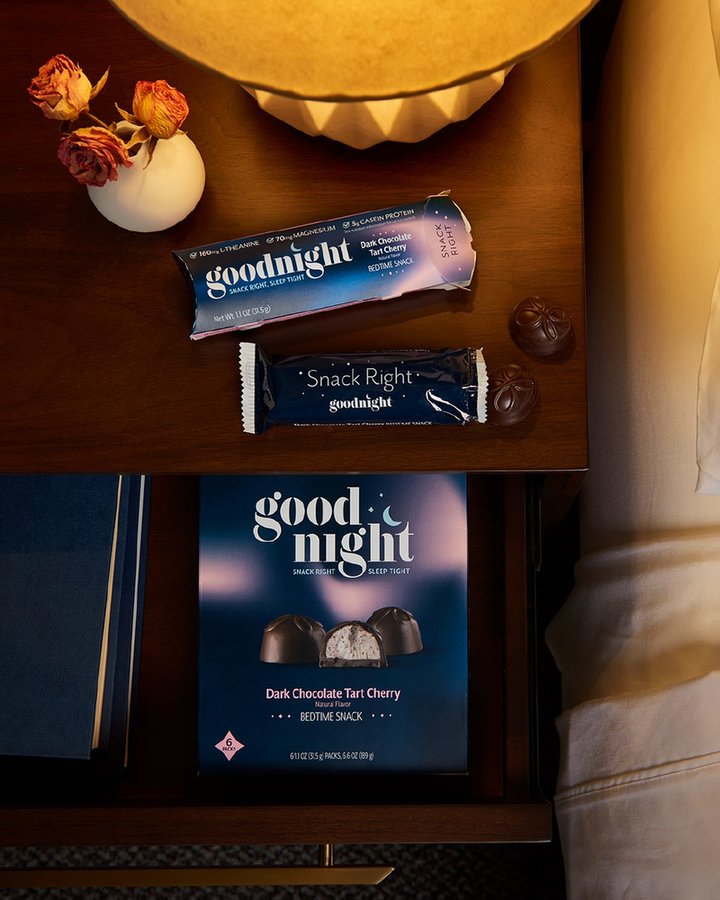
confectionary
A false dawn for sedative snacking?
More products said to help in the quest for better relaxation and sleep are becoming available. With Covid-19 driving interest in functional products, might a substantive market finally emerge? Dean Best looks at the US, a country always at the forefront of early-stage trends, and finds opinions are mixed.
T
he idea that consuming certain foods and drinks in the evening can help you wind down and help you sleep isn’t new. From grandmothers to nutritionists, a cup of warm milk or chamomile tea before bed is often suggested for people struggling to relax or get to sleep.
What is more recent is the development, launch, and sale of packaged foods or drinks sold to help in the quest for better sleep. And some market watchers believe the Covid-19 pandemic has aroused a greater degree of interest in such products.
Market researchers at Mintel have spoken in recent years about how there are untapped opportunities for food and beverage companies in this area. It’s almost five years since Mintel described “the night shift” as one of “six key trends set to impact the global food and drink market”.
“The increasingly hectic pace of modern life is creating a market for food and drink that helps people of all ages calm down before bedtime, sleep better, and restore the body while they rest,” Mintel analyst Jenny Zegler wrote back in 2016.
“Products can leverage the reputation of the tea category and use chamomile, lavender, and other herbs as a way to achieve a sense of calm before bedtime, while chocolate could be positioned as a way to wind down after a stressful day.
“There is potential for more evening-focused innovations formulated for relaxation, satiety and, taking a cue from the beauty industry, food and drink that provide functional benefits while the consumer sleeps.”
Early risers on the new market
In January this year, reflecting specifically on the French market and against the backdrop of the pandemic, Zegler said: “Food and drink brands have a renewed opportunity to offer solutions that help stressed and anxious consumers.”
“Despite rising consumer attention on sleep, less than 1% of global and French food and drink launches in 2020 had functional stress and sleep claims, meaning there’s potentially a big untapped market. Food and drink brands can create formulations and products that are designed to help people fall asleep faster, stay asleep longer, and wake up feeling well-rested.”
Zegler’s more recent comments saw Mintel list a series of food and drink products said to aid in the area of sleep. Two were – and are – sold in the US and represent perhaps the most noteworthy examples of what’s available in that country at the moment.
One is Nightfood, an ice cream developed by the fledgling company of the same name, which it says is “sleep-friendly” and made “for healthier night snacking”. The other is Driftwell, launched last year by PepsiCo, a drink the US behemoth describes as “a relaxation beverage”.
While it’s too early to call it a trend, other products touting similar attributes are on sale in the US, a market often at the vanguard of new products coalescing around common characteristics, although opinion is divided on whether a true, sustainable market will form and take hold.
Good Day Chocolate is a Colorado-based business, set up in 2014, that markets “chocolate with benefits”, chocolate supplements containing melatonin that offer “sleep relief”. Further east is Good Source Foods, located in Wisconsin, which sells a range of “better-for-you” snacks, including one SKU called Evening Chill, which the company describes as “healthy clusters for rest and relaxation”. Just Food contacted both of these companies to comment for this feature, but did not receive any.
Waking up to demand
Publicly-listed Nightfood Holdings markets its namesake ice cream domestically and in April announced an eye-catching deal with Walmart, which is stocking the products in more than 1,000 stores. Sean Folkson, Nightfood’s founder and CEO, says the largest retailer in the US is “a great place” for the brand.
“We've always viewed Nightfood as a mainstream product because we're solving a mainstream problem,” he says.
“A lot of products in the better-for-you space start out in the speciality stores, where prices will be significantly higher, and I think part of it is certain problems that are addressed are not mainstream consumer concerns sometimes. In our situation, I don't think that's the case. It's kind of a universal thing.”
We know what you eat at night is going to impact your sleep, for better or for worse.
Folkson formed Nightfood in 2010, starting by marketing nutrition bars "appropriate for evening snacking". Nightfood launched its ice cream in 2019, which the company now focuses on squarely. Folkson is sure a viable market will develop for his and similar products.
“I don't see how it could stop short of becoming a mainstream category,” he asserts. “Obviously, everybody sleeps. Obviously, everybody eats. We know over 85% of us snack regularly at night and we know the huge majority of people would prefer better sleep.
“We know what you eat at night is going to impact your sleep, for better or for worse. So, when you take all of those things together, I don't see how anybody could make the argument that it's not going to be a mainstream category.
“I think the only valid question is the timeline on it. Is it something that's going to happen in a matter of a year or two from where we are? Is it something that is going to take three to five years?”

Nightfood’s ‘sleep-friendly’ low-sugar ice cream is available in Wallmart stores.
Credit: Nightfood
Nightfood’s fiscal year runs until the end of June. Financial results are yet to be published but Folkson says the year just ended was “our first year over $1m in gross sales”. In the first nine months of the period, Nightfood’s net revenue was up 19% at just over $270,000. The business is not yet profitable.
“To grow the category and do the things that we think need to be done in order to turn this into a business that fulfils its destiny, we need to be investing and spending – and it is expensive what we're doing,” Folkson says. “There are certain projections and models that could have us profitable in calendar 2022 but it's also possible that that would not happen and that we won't be profitable for quite some time.”
He adds: “What we're concerned about is, when this category becomes a billion-dollar category, which is the company on top that's going to capture 70%-80% of the value of the category? Is that going to be Nightfood or is it going to be somebody else? Our goal is to make sure that it’s Nightfood because, again, the category’s inevitable.”
Relaxing snacking
Those that share Folkson’s belief that there are opportunities to be had with these types of products might also point to PepsiCo’s launch of Driftwell. The drink, devised by a team of PepsiCo colleagues in Canada, isn’t targeted specifically at sleep. Instead, the company is marketing the beverage as something to drink to help consumers “unwind”.
A spokesperson for PepsiCo’s so-called emerging brands unit says the drink is available on Amazon, with regional retail tests being conducted with grocers including Walmart and Kroger. PepsiCo is “in active discussions to expand in both retail and foodservice outlets through 2021 and into 2022”, the spokesperson notes.

Driftwell, PepsiCo’s new enhanced water beverage.
Credit: Driftwell
Asked for PepsiCo’s overall take on the consumer interest in ‘night-time nutrition’ in the US and what the company’s broader plans could be, the spokesperson says: “Leveraging our industry-leading suite of consumer insights tools, we are seeing continued growth in interest in both evening relaxation and sleep.
“While Driftwell is currently only available in the US, we are exploring innovation across several markets. Consumers globally are increasingly aware of the critical role rest plays in their overall wellness, and we will continue to explore and develop solutions that help.”

Nestlé recently launched Goodnight, positioned as a snack not a supplement.
Credit: Goodnight
However, a sign of how nascent the demand is for these types of products can be found by talking to Nestlé. In 2019, Foundry Foods, an innovation incubator backed by Nestlé USA, launched Goodnight, describing the product as “a snack food, not a supplement, that helps you relax and prepare the body for sleep”.
The chocolate confectionery, according to the Goodnight website, are “before-bed bites… made to help you relax and support a restful night’s sleep”. The snacks contain, for example, 160mg of L-theanine and 70mg of magnesium (two ingredients said to promote a “restful” mood and state), as well as 6g of protein.
“We’re working on making some changes to the product but have no details to share at this time,” a Nestlé spokesperson tells Just Food.
“With that said, we do see an opportunity in this particular space. As more research emerges on the importance of a good night’s sleep, and various fitness devices that track sleep become more widely used, people are beginning to see sleep as an important pillar of their health.
“At the same time, with stress and demands of everyday life, consumers are increasingly seeking solutions to help them relax before bed to improve their sleep health. Instead of turning to traditional over-the-counter drugs and supplements, consumers are looking for alternative options to prepare their body for sleep.”
Food as medicine?
Elsewhere, Unilever has teamed up with Microba Life Sciences to study “associations between the gut microbiome and sleep”, according to a statement put out by the Australia-based biotech company in March.
The Ben & Jerry’s owner has yet to launch a consumer-facing product in the vein of Nestlé or PepsiCo but the consumer-goods giant believes consumer interest is on the rise.
Through the partnership with Microba, Unilever is looking to explore the relationship between diet, lifestyle, and sleep to see if there are any associations that could help improve sleep quality. The company then wants to take that information and apply it to its food portfolio and see if its products can contribute to a better night’s sleep.
There are plenty of data points to support the overall argument that consumer interest in what some call ‘food as medicine’ is growing but many shoppers are sceptical when they encounter new products offering certain health claims.
Can food really help in the quest for better sleep? Companies will have to think carefully about their propositions and Nightfood, perhaps the principal brand in the US in this space, is careful to explain the nuance behind how it markets its product.
“It's a very fine line that we have to navigate in the mind of the consumer because we don't position as a sleep aid or a sleep product,” Nightfood’s Folkson says.
“We didn't set out to solve the sleep problem. We set out to solve the night-time snacking problem. And the way to better solve that night-time snacking problem, in a way that's better than anybody else that's ever done it, is to formulate for better sleep. What we're talking about here is in doing the right thing and delivering for yourself better sleep hygiene.”
‘Better-for-you late-night snacking’ is a tremendous proposition.
Susie Fogelson, partner and CMO at New York-based communications firm ThroughCo Communications, sees benefits in Folkson’s positioning of Nightfood but, overall, is cautious about how often consumers might buy that or similar products.
“Not positioning this as a sleep product, but as a relaxing, better-for-you, calmer, snack option seems like a good idea. ‘Better-for-you late-night snacking’ is a tremendous proposition,” Fogelson, a consultant to food brands, says.
“I still feel it’s a novelty ‘sleepy ice cream’ and think it’s a cool concept but I worry about continuity and frequency. That said, it must be delicious ice cream above all else. The challenge is how they prioritise their messaging.
“There are a lot of ‘promotables’ and organising their marketing and communications is key. So, less sugar, less fat, still delicious, infused with magnesium/B6, sleep versus relax, etc. – it’s really important to have a very clear view of personas and targeting.”
Dreaming of growth
Nightfood and others looking at the space say they are working closely with nutritionists as they develop products. On the Nightfood website, there is a list of academics the company says are “the experts that developed” its ice cream.
Binay Curtis, a nutritionist and entrepreneur, says that broadly speaking, there are ingredients, such as chamomile, melatonin, and magnesium, which can calm the body or promote better sleep.
However, reflecting on the idea of snack foods being developed to help improve in the area of sleep, she says stabilising blood sugar during the day and monitoring sugar intake in the evening are key factors in getting a better night’s sleep. “I always recommend real food and enjoy it in the simplest form possible,” she notes.
Asked about Nightfood’s lower-sugar ice cream, which contains what the company calls the “sleep-friendly” ingredients of vitamin B6, calcium, zinc, and magnesium, Curtis adds: “Of course, this option is better than conventional ice cream, but real food means the true form, such as the pumpkin seeds for magnesium or a banana for B6.”
The market for CPG products that expressly claim to help people with sleep is a small one, although I think it has the prospect to grow.
Looking ahead, it’s clear from the comments from PepsiCo, Unilever, and Nightfood that they see growing consumer interest in the area. At Nightfood, Folkson says internal studies have shown “very good results” from consumers “self-reporting how they felt after eating the ice creams, how well did they feel they slept, how much energy did they have the next day and those results were very encouraging”.
He remains bullish about the prospects for Nightfood’s ice cream and similar products designed to be ‘sleep-friendly’. “To me, it just feels totally inevitable,” he says.
“I've been saying that for a decade – but I think I'm right and I think that there's more and more reason now to think that I'm right than there was two or five or six years ago.”
Victor Martino, the founder of US consumer-packaged goods consultancy Third Wave Strategies, says success will depend on the product.
“The market for CPG products that expressly claim to help people with sleep is a small one, although I think it has the prospect to grow. It really all depends on the type of product,” Martino says.
“It must be something that resonates in the minds of consumers as making sense. For example, I've seen a functional chocolate candy product expressly for aiding sleep. My view is that people don't associate chocolates with sleep aid, or with creating relaxation. As a result, I doubt the product will be successful.
“Growth in this segment will be very minimal over the next few years and any success in the segment will depend on the specific products – whether or not they resonate in the minds of consumers as something that makes sense as a sleep aid.”